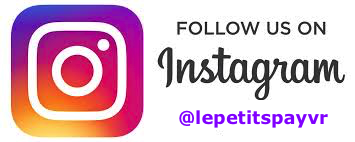How do you know when your makeup is due for a replacement?
To put it simply, old makeup won't work as well. Nothing's worse than dry eyeliner, clumpy mascara, bacteria-filled BB creams, or caked on eyeshadow that won't blend well with your skin. If your makeup looks "off,” doesn't go on smoothly or doesn't function as well as it did when you bought it, you should look into replacing it immediately.
Sometimes, nothing seems outwardly wrong with your makeup but the product has exceeded its shelf life. Though it may seem like a waste of money to throw out makeup that looks like it still has a few uses in it, there are some serious risks to using old makeup.
Why is replacing makeup important?
Buying new replacements will help keep your skin clear and keep your makeup in optimal condition. Old foundation, BB creams, mascaras, and more can harbor bacteria after a long period of time. If you notice stubborn acne breakouts or eye irritation, you could be using an old product that's full of bacteria. Your mascara can also contain harmful bacteria and viruses that can cause a viral infection or allergic reaction.
This being said, if you happen to use any products on your eyes when you have something contagious like pinkeye, you need to throw away anything that has come in contact with your eyes. Even if the makeup is a day old. Wash your brushes thoroughly in proper cleaning solutions.
Each product has a different shelf life. The best way to tell if your makeup is expired is to check the expiry date on the product. It is not always written on the bottle so it is a good idea to note the date on the packaging it comes in. In this blog, we will cover the general lifespans of your makeup products. How long does each one last?
Any "wet" makeup: 6 months to 2 years
Foundations, primers, and color correcting creams are the basis of a smooth and flawless look. They also come into direct contact with your face and pores, which means that they impact the health of your skin. Their shelf life depends on how they're stored.
Any wet product that's stored in a container has about a 6-month shelf life. If your creams come in a pump or tube, however, they can last for up to two years. Wet makeup generally runs the risk of drying out when it is exposed to oxygen.
A moisturizing cream that comes in a glass or plastic container is often exposed to more oxygen, rather than liquid makeup that comes in a tube or pump. Both types limit oxygen levels, preserving the makeup for longer.
Lipstick: 2 years
Lipstick has a rather long shelf life, making it a good product to splurge on. If your lipstick starts to look different or smell bad before the two years are up, however you should throw it away.
You can extend the life of your lipstick life by sanitizing it from time to time with a dab of rubbing alcohol. This will limit the bacteria that collects o its surface.
Eyeliner- up to 1 year
Pencil eyeliners have a rather long shelf life of one year because they can be sharpened to remove any bacteria coated material. On the other hand, liquid and gel eyeliners have a shorter lifespan due to the risk of harboring bacteria, lasting six to eight months. Liquid and gel liners also run the risk of being exposed to
Mascara: up to 6 months
Mascara is one product that you need to buy the most often. Since it's easy for even the best mascaras to lose their smooth results and become clumpy, you should always have a new one on standby. Old mascara can give you "spider leg" eyelashes and also be contaminated with bacteria, which can irritate your eyes.
One trick to extend your mascara's life to the full six months is to never pump your mascara. Instead, swirl the wand inside the tube to get more product onto it. In this way, you won't be letting the air into the tube, which dries out the product and results in dry, unsightly clumps.
Powdered cosmetics: 1-2 years
Powdered cosmetics like blush, eyeshadow, and compacts last longer than BB creams and foundation. They are less likely to grow bacteria because moisture isn't present, so they can last up to two years.
However, if any of these cosmetics start to flake or start to cake together, you should toss them out regardless of how long you've owned them. Sometimes the natural oils from your skin can affect these products before they expire, it can cause powders to form a solid, oily top layer which can collect bacteria over time. Be sure to throw your powders out if this occurs.
Organic beauty products: 3-6 months
If you have any beauty products that are made without preservatives, you need to be careful to not let bacteria grow in them. Many companies these days make products that are free of additives and are composed of natural ingredients. But the drawback is that they will need to be exchanged sooner than synthetic cosmetics. To make these last longer, you can treat them like produce and keep them in the refrigerator.
Sheet masks and other one-time-use packages
Check the expiration date for all your pre-packaged beauty items and be sure to use them before they expire. Sheet masks and eye gel pads loose their efficacy after they expire. It may be tempting to keep them since they're sealed, but using these beyond their lifetime suggestion will lead to a less than satisfactory experience as the ingredients inside aren't as fresh as they should be.
To find out more about our expert makeup recommendations or other cosmetic services, contact us. If you are in need of a beauty product overhaul, don't hesitate to visit our online shop for fresh, new cosmetics for all skin types and preferences!



